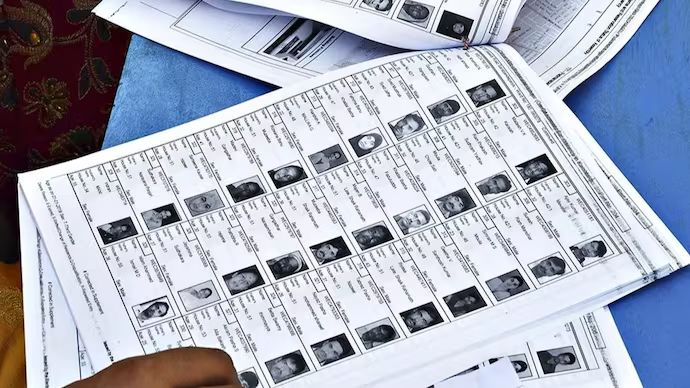The Special Intensive Revision (SIR) of Electoral Rolls in Assam marks a crucial step in ensuring that democracy functions on the principles of inclusion, transparency, and accountability. Conducted periodically by the Election Commission of India (ECI), the SIR seeks to update and purify voter lists adding eligible citizens, correcting errors, and deleting ineligible entries.
In Assam, a state with a complex history of migration and identity-based politics, the SIR assumes deeper significance. It’s not just about who votes, it’s about reinforcing faith in institutions and ensuring every legitimate citizen has a voice in governance.
Assam’s electoral history is intertwined with demographic change and political movements. Since India’s first elections in 1951–52, voter roll revision has been a routine administrative task. However, Assam’s unique socio-political background particularly following the Assam Movement (1979–1985) and the signing of the Assam Accord has turned voter list management into a sensitive exercise.
Earlier revisions often faced challenges of duplication, exclusion, and controversy over “D” (doubtful) voters. These issues led the Election Commission to initiate Special Intensive Revisions to ensure fairness and accuracy. In Assam, these exercises serve as safeguards against both manipulation and marginalization making the SIR not just a bureaucratic activity but a democratic necessity.
The objective of the Special Intensive Revision is to remove duplicate, shifted, or deceased voters. Register first-time voters and those from remote or marginalized areas. Fix misspelled names, wrong addresses, or outdated photos.
This will ensure genuine voters’ participation and minimizes manipulation. It will enable first-time and underrepresented voters especially youth, women, and rural citizens to exercise their rights. It will modernize the documentation process with digitized voter registration and linkage with official documents giving a boost to civic education and awareness of electoral rights.
This exercise may face some challenges also such as marginalized groups without sufficient documents risk being left out. The large-scale verification will create a heavy workload for election officials. Furthermore, accessibility challenges during floods or ethnic disturbances may slow down progress. Given Assam’s history with citizenship debates, voter verification could get easily politicized.
While the Election Commission carries out SIRs across India, Assam’s demographic complexity and historical experiences make its process particularly sensitive. However, recent experiences from Bihar’s SIR (2025) have become an important point of reference for other states, including Assam.
In mid-2025, Bihar launched a Special Intensive Revision of its electoral rolls to update over 7 crore voter records. The exercise, however, quickly drew national attention due to major political controversies:
- Massive Deletions and Disputes: Nearly 65 lakh names were identified for deletion—many belonging to migrant workers and marginalized communities who could not verify their documentation on time.
- Political Opposition: The RJD and opposition parties alleged that the revision was being misused to selectively disenfranchise certain voter blocs, especially ahead of the state elections.
- Legal Battles: Organizations like PUCL and ADR petitioned the Supreme Court, arguing that the process placed an unfair burden of proof on voters and risked wrongful exclusion.
- Administrative Errors: Instances emerged of citizens being marked as ‘dead’ despite being alive, fueling skepticism about data accuracy and field-level supervision.
- ECI’s Defense: The Election Commission maintained that the process followed due procedure and that deletions were provisional until claims and objections were settled.
The SIR in Assam operates in a space deeply influenced by debates around citizenship and identity. The Assam Accord (1985) advocates for detection and deletion of illegal voters. The NRC (2019) attempted to identify genuine citizens, but faced criticism for errors and exclusions. The CAA (2019) introduced religious criteria for citizenship, sparking new concerns about voter eligibility.
While the SIR of Electoral Rolls is legally distinct from these processes, the public often perceives them as interconnected. Therefore, maintaining neutrality, transparency, and accuracy is crucial to prevent social and political tension.
To ensure a more inclusive and transparent electoral process, it is essential to adopt an open-access digital platform that allows real-time updates to the voter list, facilitating transparent verification. Targeted awareness drives should be conducted to help marginalized communities understand the required documentation and procedures for claiming their voting rights. Collaboration with educational institutions, such as colleges and universities, can engage first-time voters and encourage their active participation. Additionally, involving NGOs, legal experts, and social workers as independent observers can enhance fairness and accountability. Finally, providing a longer and well-publicized window for claims and objections will ensure that errors are effectively rectified, making the process more accessible and reliable for all eligible voters.
Assam can draw several important lessons from Bihar’s experience to strengthen its electoral processes. Ensuring transparency should be a priority, with public access to data, helplines, and detailed district-level reports. Instead of large-scale deletions, voter list updates should be verified in smaller batches with acknowledgment from the voters themselves. The effective use of technology must be paired with accountability, such as local Booth Level Officer (BLO) verification. Inclusive timelines are crucial, particularly during flood or harvest seasons, to ensure no voter is left out. Building public trust is equally important, and authorities should clearly communicate that the Special Intensive Revision (SIR) is not linked to NRC or CAA to allay fears. Finally, establishing pre-litigation redressal cells can provide legal safeguards and reduce disputes, making the process smoother and more credible.
The Special Intensive Revision of Electoral Rolls in Assam is an essential democratic exercise its success lies not just in the accuracy of data but in the confidence it inspires among the people. Bihar’s recent controversy serves as a timely reminder that electoral reforms must blend efficiency with empathy. For Assam, where citizenship and identity issues run deep, the SIR should not merely be an exercise in data correction but a reaffirmation of democracy’s promise: that every genuine citizen, regardless of background or status, has an equal right to participate in shaping the state’s future.
ALSO READ: Nirmala Sitaraman Rules Out Restoration of Old Pension Scheme












